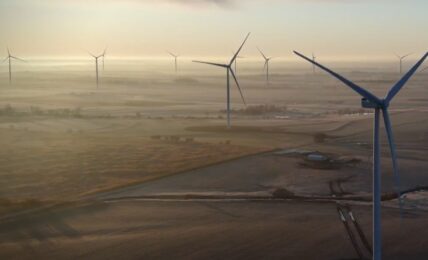An Amsterdam court ruled today that advertising by Dutch airline KLM containing claims about the environmental sustainability of aviation, the impact of initiatives such as the use of sustainable aviation fuels, and asking consumers to join the airline in ‘creating a sustainable future’ were misleading and unlawful.
In its ruling, the court said that KLM had made environmental claims in its advertisements that were “based on vague and general statements about environmental benefits,” and that in some statements the airline “paints too rosy a picture of the effects of measures such as Sustainable Aviation Fuels and reforestation.”
The ruling is a significant victory for environmental organizations Fossielvrij and Reclame Fossielvrij, who filed the suit against KLM, with the support of environmental law organization ClientEarth, marking the first lawsuit globally to address misleading sustainability claims in the airline industry.
Fossielvrij campaigner Hiske Arts said:
“Today’s judgment is a landmark victory in the fight against greenwashing. KLM’s “green” marketing creates a misplaced trust that even if you are worried about the climate crisis, you can board a plane reassured you are not harming the planet. The judge has put an end to this harmful strategy to lull the public and politicians to sleep.”
The lawsuit, launched in 2022, challenged the airline’s “Fly Responsibly” advertisements, claiming that the ads and offset marketing violated the standards set by EU consumer law by suggesting that KLM flights do not contribute to the escalating climate crisis. According to the complaint, the advertising campaign was misleading as it argued that the airline industry’s climate solutions such as using biofuels and synthetic fuels are not sufficient to make flying sustainable, and as KLM’s CO2ZERO offering enabling passengers booking flights to use carbon offset products to “reduce your impact” suggests that emissions from flying can be offset or reduced through planting trees. KLM stopped using the advertising prior to the trial.
ClientEarth Lawyer Johnny White said:
“This judgment is nothing short of a wake-up call for highly polluting industries and companies who have tried to sell the image of commitment to the Paris climate goals without having the plans to get there.”
Of the 19 specific statements made by KLM in its advertising campaigns that were targeted by the suit, the court ruled that 15 were misleading. Statements that were not ruled misleading included those outlining the airline’s 2030 climate ambitions and appealing to stakeholders to take steps to make aviation more sustainable.
While noting that KLM “failed to provide consumers with fair and concrete information,” the court did not require the airline to rectify the statements, as it had already stopped carrying the advertisements. The court also confirmed that KLM may continue to advertise flying, and did not require the airline to warn consumers that aviation is not sustainable. The court added that “If KLM informs consumers about its ambitions in terms of CO2 reduction, for example, it must do so honestly and concretely.”
In an emailed statement following the ruling, a KLM spokesperson said that “it is good that the court gives us more clarity about what is possible and how we can continue to communicate transparently and honestly about our approach and activities.”
The spokesperson added:
“Our communication about sustainability must be honest and transparent. We have already taken important steps in this regard and have not used the 19 communications that were central to this case for some time now. We are pleased that the court has ruled that we can continue to communicate with our customers and partners about our approach to making aviation more sustainable. We are continuously learning how best to include them in this.”


